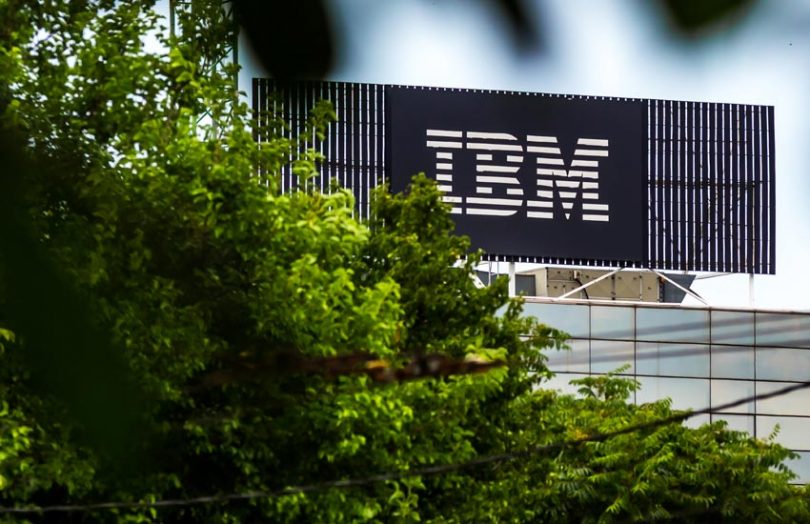Today IBM announced that it has invested in blockchain trade finance platform we.trade as part of an “enhanced collaboration”. IBM was the original technology partner for the enterprise blockchain network. However, its role was reduced when we.trade hired new general manager Ciaran McGowan who has a software background. He built an in-house development team in Ireland.
To date, we.trade has only had two banks fully in production. That will change in the next month or so, and the volumes on the platform will start to take off. The amount of IBM’s investment was not disclosed, but we.trade is aiming to raise €15 million ($16.5m) this year in total, with another round expected in September.
Currently all 12 we.trade shareholder banks are European: CaixaBank, Deutsche Bank, Erste Bank and its subsidiary Česká spořitelna, HSBC, KBC, Natixis, Nordea, Rabobank, Santander, Société Générale and its subsidiary KB, UBS, and UniCredit Italy. Eurobank, CSOB and UniCredit Germany are non-shareholder licensees.
But the company plans to go global. IBM can provide on the ground help and support as the network expands with additional banks from Canada and Japan likely to join soon. TradeIX, the service provider behind another trade finance platform Marco Polo, attracted investment from Accenture for similar reasons.
Apart from that, there’s also the opportunity to integrate with IBM owned platforms IBM Food Trust and TradeLens, the joint initiative with Maersk.
When Ledger Insights spoke to McGowan in April, he outlined plans for “delivering on the vision of the network of networks. We’re not going to be able to build it all. So we’ll need to connect into platforms that have valuable data,” said McGowan.
He elaborated: “Things like being able to confirm a green transaction. So if there’s a platform that has a farm to fork scenario, and you know the origin of those products come from a green company, then you can give a 10% discount on the transaction fees or on the bank fees in the case with the green transaction.”
There are also plans to integrate with other trade finance networks such as Hong Kong’s eTradeConnect, the trade finance network with 12 Asian banks, and the technical integration work is already complete.
“The strategic direction for we.trade and IBM is focused on driving growth and transparency across the entire trade ecosystem, collaborating to enhance the network effect of blockchain, and expanding access to trade finance and other services to the market place,” said Jason Kelley, GM Blockchain Services, IBM.
As far as we understand, IBM’s primary blockchain investments are in IBM Food Trust, Tradelens and IBM World Wire. Most other solutions are client engagements with some IP licensing.
Progress held back by security and compliance
We.trade went live back in 2018. But two years on, the volumes are small. That’s because just two banks are fully in production, Nordea and Société Générale .
“The majority of the banks in we.trade are trading under exception. What I mean by that is they’re allowed to do maybe a 100 transactions and bring on 50 customers,” said McGowan. “And out of the 16 banks on our platform, four are going through the process of onboarding, ten are what you would call pilot / soft launch, and then there are only two that are regarded as full launch. And full launch means they’ve trained their team, they’ve got the sales materials, they’re actively promoting and bringing on customers.”
McGowan explained that the reason for the delay was requirements from the banks relating to compliance and security. We.trade expects those restrictions to be lifted within a month or so, at which time the pace of adoption will accelerate.
“It’s only when you get everybody at the same speed and same pace that you have created that network effect, and you’re going to see the benefit,” said McGowan. “So, I’m optimistic about the second half of the year because of that.”
He elaborated on the targets. The current banks will bring on board 10% of their open account trade finance customer base. Hence McGowan expects the platform to have 25,000 users within three to four years and 2.5 million transactions.
A change of investment plans?
Meanwhile, COVID-19 is making many things somewhat unpredictable. And from talks with companies unrelated to we.trade, many banks are distracted right now. When we spoke to McGowan in April, he was planning a round of funding from existing shareholders in May, and another in September from outside shareholders, including insurers. The target is to raise a total of €15 million ($16.5m) this year.
“They’re strategic investments rather than VC (venture capital). We’re not seeing VC investment, because the return on investment wouldn’t be big enough. They’re looking for a twenty times return,” said McGowan.
“And we’re structured that we’re not going to make huge profits. It’s more that this is a very strong value proposition for the banks and insurance companies and credit rating companies for them to make money on the platform. And for the banks’ customers to get financial products at better rates and in a more efficient way.”






